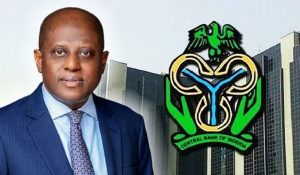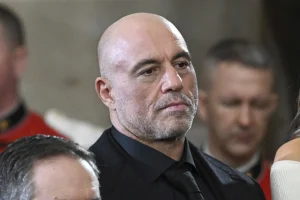NAFEM Window and BDC (USD, GBP, CAD, EURO & YUAN) Rates – April 9, 2025
Closing Rate- N1,611.55
Read More
Comment
0

I didn’t embrace Islam and Yoruba culture for Tinubu — Reno fires back at Obi’s aide
So, Mr. SA Media to Peter Obi, please note that while your boss was chasing money up and down as a typical trader, I was chasing God.
Read More
Comment
0

Petrol price likely to fall as FG pushes crude-for-naira deal
We are ensuring that the crude-for-naira initiative helps stabilise the naira...
Read More
Comment
0

CBN posts $6.83bn balance of payments surplus for 2024
The balance of payments position recorded a significant improvement...
Read More
Comment
0

Joe Rogan, Dave Portnoy and Ben Shapiro are among Trump backers now questioning tariffs
Rogan called the idea “crazy.”
Read More
Comment
0

Obi warns: Nigeria on the verge of collapse
We are sliding backwards, and we must retrace our steps to save the country.
Read More
Comment
0

FG doubles down on Crude-for-Naira deal
Key stakeholders, including representatives from the Central Bank of Nigeria and NNPC, participated in the meeting, where they discussed progress and addressed challenges. The government remains focused on leveraging strategic fiscal measures to...
Read More
Comment
0

The world will shake to its core: What a US strike on Iran could unleash
In this complex and explosive environment, the international community is also paying close attention to Russia, which, according to Bloomberg, has expressed its willingness to act as a mediator in the dialogue between the US and Iran.
Read More
Comment
0

Kemi Olunloyo rejects condolences, distances self from late father
“My father destroyed our family unit... He tortured us emotionally and physically.”
Read More
Comment
0

TikTok’s algorithm can’t leave without China’s permission, delaying sale to US
U.S. lawmakers remain skeptical, concerned ByteDance may retain influence even after a sale, posing a national security threat.
Read More
Comment
0